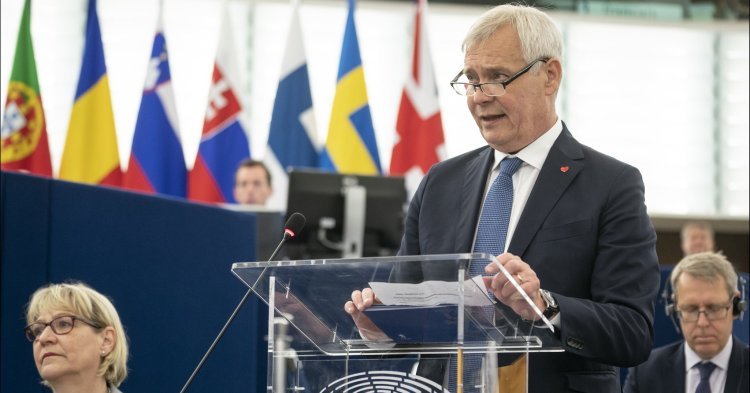The presidency of the Council of the EU is taken very seriously by member states. The role allows the governments who take it on to make their areas of interest a priority on the agenda of the most powerful European institution (alongside the European Council). It also gives governments a chance to show that they can facilitate and mediate debates between the Council members and the other influential decision-maker in European policy, the European Parliament.
Since 1st January 1958, member states of the European Economic Community, (the European Union from 1993 onwards), have taken turns filling the role of the rotating presidency. It was Finland’s third turn, having previously occupied the role in both 1999 and 2006. It is important to note that the presidencies of the Council are always in groups of three, who work together in a trio for a year and a half. Finland thus developed a programme alongside Romania and Croatia.
Despite a change of prime minister that occurred during the six month term (Sanna Marin replaced Antti Rinne on December 10th 2019), can the legacy of the Finnish presidency be considered positive?
The presidency with a “strategic program” for 2019-2024
The Finnish presidency wanted to be the first to follow a “strategic program” put in place by the European Union for the period of 2019-2024. The aim of this program is to tailor the EU’s operations to fit an increasingly unstable world. It is centred around four themes that are quite vague, which is typical of EU communications. These are: protecting citizens and their freedoms, fostering a stable and dynamic economy, building a green, carbon neutral Europe that operates fairly and in a socially cohesive way, and finally promoting European interests and values on the world stage.
These themes were broadly based on the priorities of the Finnish presidency. More generally, Finland is committed to making the Council’s work easier to understand for citizens of the EU.
Reinforcing common values and the rule of law
While the trend of authoritarianism observed in Poland and Hungary is concerning for many, Finland wishes to be seen as an exemplary defender of democracy and rule of law, values which are integral to the European project. Finland has been a highly stable parliamentary democracy since its independence in 1917.
Notably, Helsinki has drawn conclusions about changing European dialogue with regard to rule of law from an enquiry led by member states. The country has also advanced work on resilience to hybrid threats, such as cyberattacks. European legislation in this area is still in its preliminary stages and its development is imperative, as countries like Russia are increasingly suspected of wanting to sabotage European democracy.
Making the EU more competitive and more socially inclusive
The Scandinavian social justice model, despite reforms aiming to weaken the welfare state, is considered the best in the world. It is therefore natural that Finland would want to promote an EU which is both competitive (and which therefore creates jobs) and inclusive (to reduce inequality).
For the Nordic country, industrial policy, the digital economy, and research and development have always been their principal focuses. Numerous Council meetings have also emphasised the role of education and training in a competitive and innovative economy. The Finnish school system is regularly ranked as the best in Europe, if not the world. This explains the country’s good economic performance and its willingness to promote this issue on a European level.
Consolidating the position of the EU as the world leader on climate change
This has been the talking point these past few months. Since last year, raising awareness about the fight against climate change and the ecological and energy transition policy needed has taken up a considerable amount of space in public debate. It has become apparent that the demands of civil society clash with the slow progress of public policy.
The Finnish presidency views the advancement of the Green Deal as one of its biggest successes. Unveiled mid-December, this flagship strategy of the European Commission should enable Europe to become the first carbon neutral continent by 2050. The proposed legislative arsenal (around fifty measures to be approved this year and in 2021) will establish European leadership in the energy transition. Even more tangibly, the Finnish presidency can boast that it was one the presidencies with the lowest carbon footprint. Indeed, the desire for efficiency meant that the presidency could reduce the number of meetings, which enabled the Finnish presidency to emit 70% less in greenhouse gases than a “classic” presidency.
Guaranteeing global security for everyone
Finally, external European action has not been neglected, even though there is less room for manoeuvre there. The current Commission, headed up by Ursula von der Leyen, has proclaimed itself to be the “Geopolitical Commission”, and the Finnish presidency attempted to support the actions of the High Representative of the Union on the international stage.
Helsinki reiterated the importance of the strategic partnership with Africa and of the coherence of European policy regarding the Arctic. However, it had less luck with its enlargement policy. The European Council refused to open accession negotiations with North Macedonia and Albania.
Finland can be proud of the legacy of its presidency. Yet it leaves its successor Croatia still much work to be done.


Follow the comments: |
|
